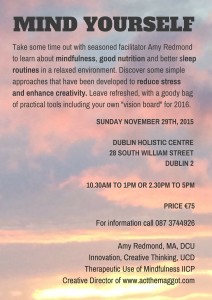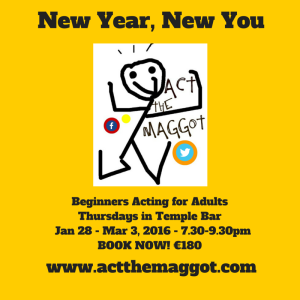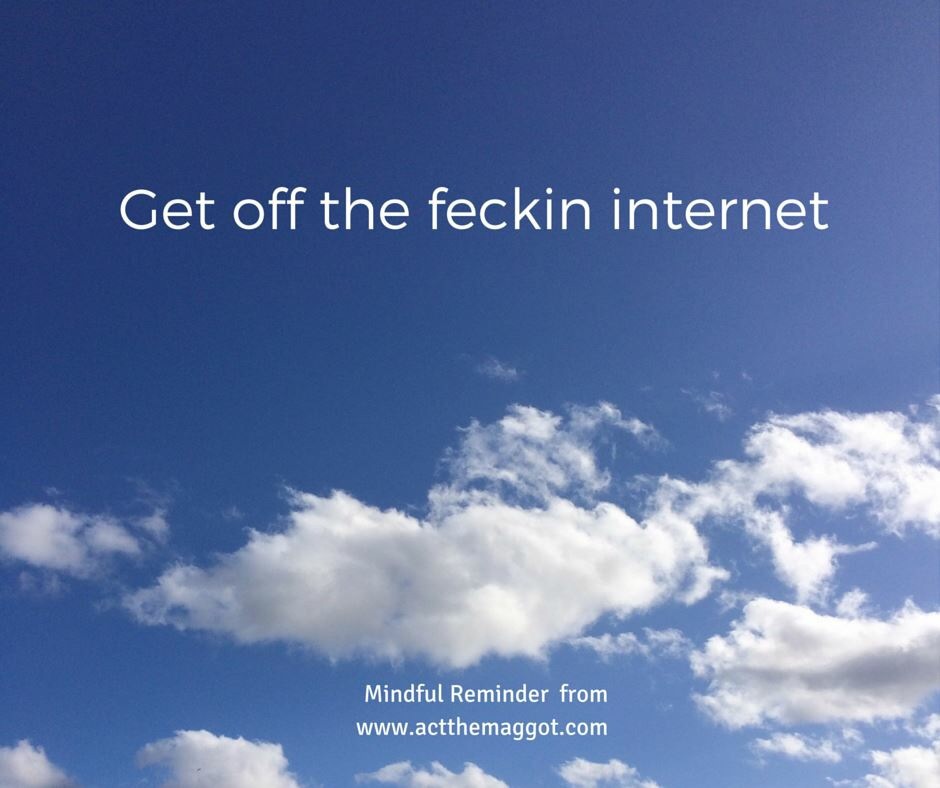Have a read of our testimonials here from the Mind Yourself workshops. The next one is March 5th, 2016 at the Dublin Holistic Centre. Email us for more information and booking details. Thanks!
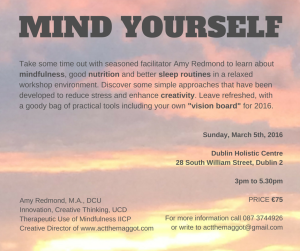
Author Archives: Act The Maggot
Today’s Mindful Reminder!
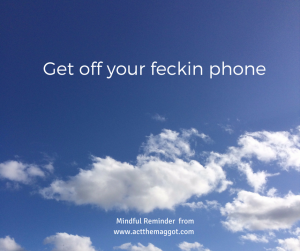
Take a look at the testimonials from our Mind Yourself workshop
2016 Classes booking now
Options for 2016. Put those pennies away! Booking has begun. Beginners Acting class is on Thursdays and Improvers Acting class is on Tuesdays. These classes are hot. See our testimonials
To bag your spot email us: actthemaggot@gmail.com
Thanks for Minding Yourself!
 Thank you to all the participants who came out in the wind and rain to the Mind Yourself workshop on Sunday in the Dublin Holistic Centre. What a lovely, relaxing day!
Thank you to all the participants who came out in the wind and rain to the Mind Yourself workshop on Sunday in the Dublin Holistic Centre. What a lovely, relaxing day!
Testimonials are already coming back. The response has been great so we will definitely run another one in early February 2016.
Keep an eye out here and on our Facebook & Twitter updates for dates and details.
#wakingthefeminists
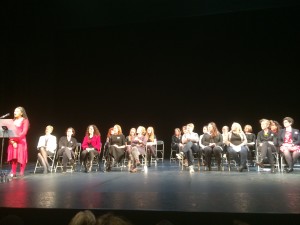 Here is Amy Redmond’s report from Waking The Feminist’s event at The Abbey Theatre, Thursday, November 12th, 2015. Full text below.
Here is Amy Redmond’s report from Waking The Feminist’s event at The Abbey Theatre, Thursday, November 12th, 2015. Full text below.
Amy Redmond was at the Abbey Theatre for the Waking the Feminists protest.
Throngs of people line the doors of the Abbey Theatre and spew out onto the opposite street. Well over a thousand. These are people who were not lucky enough to get one of the free tickets that sold out within 10 minutes. “The Abbey hasn’t had a full house like this in a while!” “Certainly never a waiting list this long!” – are just some of the comments overheard. The air of excitement and jubilance is palpable. The crowd, mainly women of all ages have rallied for this event – the culmination of an online debate coined “Waking The Feminists” and instigated by set designer and arts manager, Lian Bell who responded in anger to the unveiling of the Abbey’s 1916 Waking The Nation program and Abbey Director, Fiach Mac Conghail’s glib remarks on twitter.
On October 28, Mac Conghail announced his programme for 2016 and of the ten works to be produced only one has been written by a woman and three are to be directed by women. Twitter comment after Twitter comment appeared and due to Lian Bell’s tireless retweeting and re-posting, the movement #WakingThe Feminists was born. Veteran actor Eleanor Methven has called it the Easterogen Rising! And so, on our way into the 620-seat venue, I spy Gary Hynes giving a radio interview and I can see, hear and feel the hope that’s in the air. Taking our seats in the jam-packed auditorium, I hear a young voice exclaim, “It’s so exciting, I had no idea so many women felt the same. It’s so cool to be coming to visit the Abbey for an occasion such as this”, and then behind me, an older woman says, “About f****ing time!”
Three rows of empty chairs line the stage and Senator Ivana Bacik arrives to chair proceedings. She is met with uproarious clapping and cheering that goes on for at least two minutes. She is pleased and even more so, she says herself, at being able to say, “Waking The Feminists” live on the stage of the Abbey Theatre! She gets serious then and mentions the need to address women’s invisibility in public life, not just in theatre. She explains that a range of female theatre artists will each have ninety seconds and there will be time for comments from the audience at the end. Producer Sarah Durcan introduces the first speaker and the woman who began the campaign, Lian Bell, who is given a standing ovation. Bell stresses that the Abbey is “our theatre” and for too long Irish society has only been getting “half the story”. She says, “apparently I am this angry!” and says she thought to herself after writing her initial angry response, “Fuck, it, press send”. At this, the crowd erupts once more. Writer and performer Amy Conroy says the “problems are deep in the marrow. There are no buts – you believe in equality or not”. Company SJ, Artistic Director and academic Sarah Jane Scaife mentions Mc Conghail’s badly-planned program and remarks that the Abbey Theatre has to be the “national expression of its people, inside or outside the building”.
Director Catriona McLaughlin speaks of how meaningful it was for her to hear the voices of Brian Friel and Frank Mc Guinness growing up but that she is no longer content to let those voices speak for her. “Being fair takes work”, she says and implores that it is “time to listen”. Actor Derbhle Crotty echoes McLaughlin quoting latin, “much tempus est” – “The time is now”. Playwright Ursula Rani Sarma’s comments are delivered by Claire Barret who asks, “Is there some sort of giant firewall surrounding women playwrights?” and also repeats warnings Sarma had been given as a reason to be quiet, “Be careful. People might think you’re bitter”. Actor, writer and director Gina Moxley says, “women with opinions are regarded as trouble, awkward c**ts, or crazy bitches who get sidelined” and she finishes by saying, “we’ve picked the lock of the closed door. We’re coming in”. So many women artists speak or their words are communicated in their absence, Jenn Coppinger, Mary Duffin, Marie Mullen, Olwen Fouere, Gary Hynes, and many more.
Actor and facilitator Ali White announces that she is the one female whose work is being produced but then refers to fact that her work has been cited as “only” a monologue so, “My play is not a play! Figure that one out?” White is referring to what has been bandied about around her work. Only one play is written by a woman but that’s an outreach monologue for children. White wrote Me Mollser, inspired by the consumptive 15-year old character, Mollser, from Sean O Casey’s The Plough and The Stars. White says Mollser has only fifteen lines in the play but White discovered that she has loads to say. Me Mollser will begin its first phase of touring schools nationally from January to March 2016 as part of Waking The Nation. Later, Mc Conghail apologizes to White and salutes her for her incredible work.
Lighting Designer Zia Holly says she’s proud to be one of the girls and remarks, “boys were never told that they can do anything that girls do”. Actor Noëlle Browne says that is it is men who mostly have the power to give you work and that it is still a struggle to be heard and that sexism not confined to theatre. Today, acceptable prejudice is the norm. She finishes by saying she doesn’t want special treatment. “I want equality”. Costume designer Joan Cleary highlights the need for an examination of status quo to rates of pay. Director Laura Bowler quotes from the poem she previously uploaded to Youtube once the debate flared, “for the sake of making sense of the time it’s taking, dead men are still taking precedent over living women… We do jobs we never want to support lives we hate…When you wake we’ll be gone”.
Eleanor Methven declares she has been awake since 1976 and that she set up Charabanc Theatre because “there were not enough good roles for women. We were tired of playing somebody’s sister, somebody’s mother, or daughter. Actor Janet Moran reiterates this sentiment asking, “when do we get to be the somebody?” Artistic director and producer Roise Goan asks what happens next? “It is imperative that the Abbey share the work of women writers and commits to producing women’s work over next 5 years,” she demands.
When comments from the floor are opened, Annie Ryan, Artistic Director of Corn Exchange, says, “the nature of theatre is to address the most important thing. We want plays to be robust, on solid ground. I’m looking forward to where the conversation is no longer on the surface if things, in much deeper waters”. Playwright Deirdre Kinahan, who is also a board member of the Abbey Theatre says, she always felt she laboured under a gender bias. “Women are no longer in the corner. The world has turned. The ground has shifted. We all want better. Women are not lesser citizens,” she says and asks “What actions do we take to implement change?” Director Grace Dyas admits, “Maybe I’m not able to stick up for myself” and acknowledges all the women on the stage in thanks for lending their voices. She closes with the promise, “I’m making a pledge today to hold people to account for bias, misogyny, inequality”.
Activist Kathleen O’Neill tells the crowd that two hundred and sixty seven women were involved in the Easter Rising but, at best, only seven can be named. Mary Moynihan, director of Smashing Times Theatre, says that for women it is not about “asking for power but to take power”. She also discusses the idea of gender quotas and says, though not necessarily a fan, the research is there to prove that if there is at least 30% to 40% of women’s voices represented, then change can take place.
Finally, the Abbey Director, one of the most powerful men in Irish theatre, Fiach Mc Conghail, rises to give his five-minute speech nearing the end of the affair. The moment he is announced there is a visible shift in the space, not just heads but the entire auditorium revolves physically in an ensemble of more than 600 bodies to fix eyes on him! He is contrite and says he is “extremely humbled” and admits that he has failed to check his privilege. When planning his program for 2016 he says, “I wasn’t thinking about gender balance. I should have checked myself. We can’t have true artistic freedom unless we have gender equality. What investment can we make? How do we motivate? For a time I need to commission more women than men, initially, to address the balance. The Board has made the commitment. It is crucial to listen.”
Since 2006, just 12.3 percent of the plays shown at the Abbey have been by women. Lucy Kerbel from Tonic Theatre company talks about her work trying to change the gender ratio in UK theatres and urges women to explore feminism, that the campaign does not end here. Senator Bacik reminds the crowd that 84% of politicians are male and that only 28% of peak-time radio panels are made up of women. Producer Sarah Durcan closes proceedings and thanks everyone to a massive standing ovation. The sounds of Aretha Franklin’s ‘Respec’t begin and hundreds of women and some men in the crowd are all dancing, clapping and cheering. This is a small victory for women artist’s rights. To have protested, to have been listened to and to have been invited and heard on the stage of the Abbey Theatre on 12th November 2015.
In the words of playwright Nancy Harris who pithily says that the concept of the National Theatre needs to change to include women so that “our work should speak for us so we don’t need to stand here speaking for it”. It’s a start. Only, time will tell.
See Waking The Feminist’s blog here to follow developments
You can sign a petition here at change.org if you support equality for women in Irish theatre
Happy Friday
First 2016 class booking up!
 Hello there prospective maggots! Just a word of warning. Enquiries are coming in daily for the next beginners acting class and eager maggots in the making have already started paying their deposits and in some cases, the full course fee. So the next six-week class will be from Thursday, January 28th – Thursday, March 3rd, 2016. 7.30-9.30pm in The Temple Bar Gallery & Studios, Temple Bar, Dublin. Each course costs €180 and a non-refundable deposit of €50 must be paid to guarantee your spot. Get looking and get booking! For more information click here and if you want to go ahead and book just send us an email to actthemaggot@gmail.com
Hello there prospective maggots! Just a word of warning. Enquiries are coming in daily for the next beginners acting class and eager maggots in the making have already started paying their deposits and in some cases, the full course fee. So the next six-week class will be from Thursday, January 28th – Thursday, March 3rd, 2016. 7.30-9.30pm in The Temple Bar Gallery & Studios, Temple Bar, Dublin. Each course costs €180 and a non-refundable deposit of €50 must be paid to guarantee your spot. Get looking and get booking! For more information click here and if you want to go ahead and book just send us an email to actthemaggot@gmail.com
Today’s Mindful Reminder
Mind Yourself Workshop
Listen To Me Marlon: Film Review
Aside
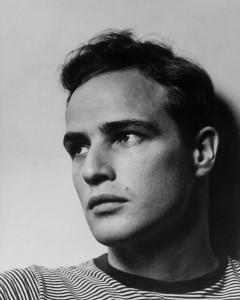 Amy Redmond writes for Film Ireland and goes into Marlon Brando’s heart of darkness and reviews the latest documentary charting the acting legend’s life. Full text here.
Amy Redmond writes for Film Ireland and goes into Marlon Brando’s heart of darkness and reviews the latest documentary charting the acting legend’s life. Full text here.
DIR: Stevan Riley • WRI: Stevan Riley, Peter Ettedgui • PRO: John Battsek, Helen Bennitt, George Chignell, R.J. Cutler • DOP: Ole Bratt Birkeland • ED: Stevan Riley • DES: Kristian Milsted • CAST: Marlon Brando
Award-winning British filmmaker and Oxford history graduate, Stevan Riley has combed through thousands of hours of the self-taped musings of actor Marlon Brando and combined them with studio archive footage and stunning portrait photography to create an engaging and intimate portrait of one of Hollywood’s greatest acting legends. From the outset, we are brought on a journey through Marlon Brando’s life with the actor himself speaking about his experience and craft, often in the third person.
Interspersed with film footage, tons of photography and news reports of the later tragedies that occurred in the actor’s personal life, the use of Brando’s own voice throughout is powerful and revelatory. A digitized image of Brando’s face speaking, opens the film and this device is effectively returned to throughout the documentary. Brando speaking the lines of Macbeth’s “tomorrow and tomorrow and tomorrow” speech, “a tale told by an idiot, full of sound and fury, signifying nothing”, mirrors the actor’s love-hate relationship with the business he chose. He refers to the illusion of success and how he can’t stand it, how it “removes you from reality”. He reflects upon his early days and refers to himself as some sort of confused “mechanical doll” who “felt inadequate because he didn’t have enough education.”
We learn that Group Theatre actor and teacher Stella Adler had a huge impact on his career in the early days in New York and even took him into her home telling him, “Not to worry, that the world would be hearing from him.” Thus, in 1954, Brando became the youngest ever actor to receive an Academy Award for his portrayal of Terry Malloy in On The Waterfront.
Brando speaks about the mythical nature of film, of its power of escape. He maintains that the audience makes the film. The audience is actually doing the acting. The audience wants to have been the “contender” and wants to “have been someone” and feels like the failure too sitting there watching the lighted characters flickering on screen in the dark auditorium. He posits that films allow the audience to play out their fantasies – to kiss the beautiful woman, to beat down the aggressors, to be the hero, to flee from their fears and escape reality briefly.
As a child, Brando would cut lawns and collect bottles to gather together 10 cents to go to the weekly movie. Those hours were a magical escape from the roughness of his father and his poetic mother who was also the town drunk. The pain of his own life fuelled some of his roles. He explains that the actor must bring some truth of himself to each moment but that some roles are closer to the actor’s real life. Brando hovers between having an obsessive love for the craft of acting to a deep hatred of the business. At one point he tells an interviewer, “there is no such thing as a great movie, it’s all money, it’s all bullshit”, and for periods in his life he quits acting altogether in favor of activist work in the civil rights movement and regularly spoke out about the plight of the American Indian and America’s lack of honesty with its own history.
In March, 1973, Native American Indian, Sacheen Littlefeather accepted his Oscar for Vito Corleone in The Godfather on his behalf. Political to the end and careful to choose meaningful work when he could, he also possessed a good sense of humour. His searing honesty about some of the acting choices he’d made in the fallow years are entertaining, especially his references to Candy, the worst movie he ever made. He says he inherited his sense of the absurd from his mother, who herself was an actress. Despite her alcoholism, he was devoted to her, unlike his father who sent him away to military school against his wishes. It was up in the library there, lonely and dejected he’d thumb through copies of National Geographic magazine where he developed his fascination for Tahiti. He would finally visit there one day when he famously turned down the opportunity to star as Laurence of Arabia in favour of starring as Fletcher Christian in Mutiny On The Bounty, which was filmed on location in Tahiti. He speaks of the natural unmanaged faces of the island people comparing their lack of manufacture. He opines that the white man “lives the nightmare of the want of things.”
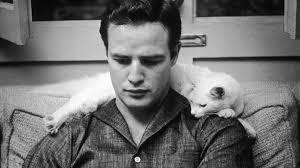 Famous for being a reclusive, he bought his own Tahitian island but maintained that rather than seeing himself as an owner, he paid money for the privilege of visiting and spending time with these wonderful natives. Brando’s musings are those of a deep thinker who struggled with his demons and this documentary, with a nod of respect to Marlon Brando’s fierce sense of privacy, tastefully touches upon and manages to illuminate subtly the tragedies that befell his family life.
Famous for being a reclusive, he bought his own Tahitian island but maintained that rather than seeing himself as an owner, he paid money for the privilege of visiting and spending time with these wonderful natives. Brando’s musings are those of a deep thinker who struggled with his demons and this documentary, with a nod of respect to Marlon Brando’s fierce sense of privacy, tastefully touches upon and manages to illuminate subtly the tragedies that befell his family life.
This is a rare view into the life and mind of one of the gems of Western theatre and film. From his electrifying performance as the brutish Stanley Kowalski in Streetcar Named Desire, right up to his hulking, ominous portrayal of Kurtz in Heart of Darkness, we are talked through the ups and downs of his life’s work. It is original and spellbinding for its intimacy as we get a posthumous narration of sorts from the actor himself. A must see for Marlon Brando fans or those interested in an insight into the acting life and the price celebrities often pay for success.
Amy Redmond
15A (see IFCO for details)
102 minutes
See current listing for this film, Listen To Me Marlon at the Lighthouse Cinema in Smithfield, Dublin.
What is a Vision Board?
Image
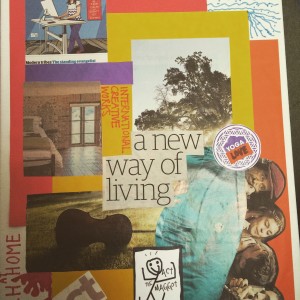 Act The Maggot is hosting two MIND YOURSELF workshops on Sunday, November 29, 2015. As well as exploring Mindfulness, we will make our own vision boards. What is a vision board, you ask? A vision board is a visual representation of all the things that you want to do, be, and have in your life. It’s a daily reminder of those things. It can be made easily using a small canvas and glueing on meaningful images and words. It is nice to find images of things you want to have, places you want to go, activities you want to do, things you want to learn. Some people make them very focused on one area in their lives and others make them generally covering topics such as, health, heart, work, spirit. It is then, something you can look at every single day to remind you of your deepest desires. And it’s powerful. Because ATTENTION is powerful, and where your attention goes, your energy flows. Don’t you want your attention focused on the things that you want to attract in your life? It works! Make one this weekend with a friend or alone or better still make one with us. For more information see our poster beneath or call Amy at 087 374 4926 or (01) 496 7021 weekdays between 9am-11am. Thanks.
Act The Maggot is hosting two MIND YOURSELF workshops on Sunday, November 29, 2015. As well as exploring Mindfulness, we will make our own vision boards. What is a vision board, you ask? A vision board is a visual representation of all the things that you want to do, be, and have in your life. It’s a daily reminder of those things. It can be made easily using a small canvas and glueing on meaningful images and words. It is nice to find images of things you want to have, places you want to go, activities you want to do, things you want to learn. Some people make them very focused on one area in their lives and others make them generally covering topics such as, health, heart, work, spirit. It is then, something you can look at every single day to remind you of your deepest desires. And it’s powerful. Because ATTENTION is powerful, and where your attention goes, your energy flows. Don’t you want your attention focused on the things that you want to attract in your life? It works! Make one this weekend with a friend or alone or better still make one with us. For more information see our poster beneath or call Amy at 087 374 4926 or (01) 496 7021 weekdays between 9am-11am. Thanks.
